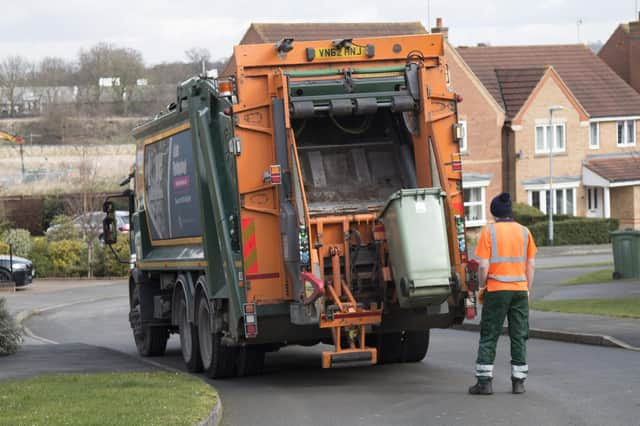Council votes to introduce kerbside waste collections of batteries and vapes


The scheme would involve collecting batteries and single use vapes separated from regular waste to reduce the risk of fires in bin lorries and waste storage areas.
The council’s cabinet unanimously approved the plan for a battery recycling service across the district when it met last week on November 7.
Advertisement
Hide AdAdvertisement
Hide AdThe recommended scheme, already supported by the Environment Committee, is for a kerbside collection, where householders provide their own plastic bags with batteries in for collection and will be able to be put out for collection with all bins or bags. This was the most cost-efficient and sustainable method of ensuring the ongoing safety of crews and reflects SKDC’s commitment to its Climate Change goals.
It is hoped the new scheme will be in place from March 2024 following the introduction of separate recycling collections for paper and card.
Reporting to the Cabinet meeting, Interim Director of Operations and Public Protection, Adrian Ash, said: "Concerns were raised in respect of the safe recycling of batteries as a result of an incident in March 2023, when a refuse vehicle was forced to empty its smoking and smouldering contents onto the ground in Ingoldsby. The source cannot be confirmed but may have been due to a suspected spark caused by a domestic battery or a single use vape.
"South Kesteven District Council take the safety of our waste/recycling operatives very seriously and want to do everything possible to mitigate any risk to them.
Advertisement
Hide AdAdvertisement
Hide Ad"In addition, recycling can help to extract the raw materials from used batteries and support the move towards a circular economy."
In July 2022, a Lincoln bin lorry had to shed its load onto a city street after a battery caught fire in the back. In Boston, an electrical appliance caused a fire in one of their collection vehicles in April last year. And Bourne Household Waste Recycling Centre had to close for a short time in January 2022 as fire crews tackled a blaze that had broken out in the general waste container there.
The new scheme would cost £13,000, with £8,000 spent on converting council vehicles and a further £5,000 for public information about battery and vape recycling.
Implications include adapting vehicles and depot layout to meet additional safety requirements.
Advertisement
Hide AdAdvertisement
Hide AdCurrently, to keep bin crews and refuse centre workers safe, people should dispose of batteries in dedicated battery bins at retailers or their local household waste recycling centre.
This also applies to smaller electrical items containing batteries such as toothbrushes, shavers, chargers and toys. If batteries cannot be removed, then electricals should always be recycled separately at the Household Waste Recycling Centres.
Details of Lincolnshire County Council's Household Waste Recycling Centres can be found online at www.lincolnshire.gov.uk/recycling-waste/find-recycling-centre
There is a handy link to find your nearest supermarket/hardware store disposal point: https://bit.ly/batterySKDC
Check you are putting the right thing in the right bin at home by visiting www.southkesteven.gov.uk/whichbin
